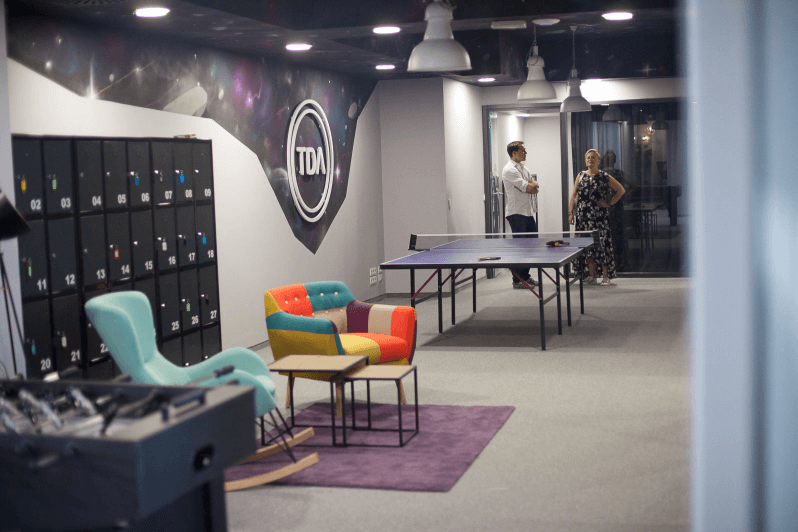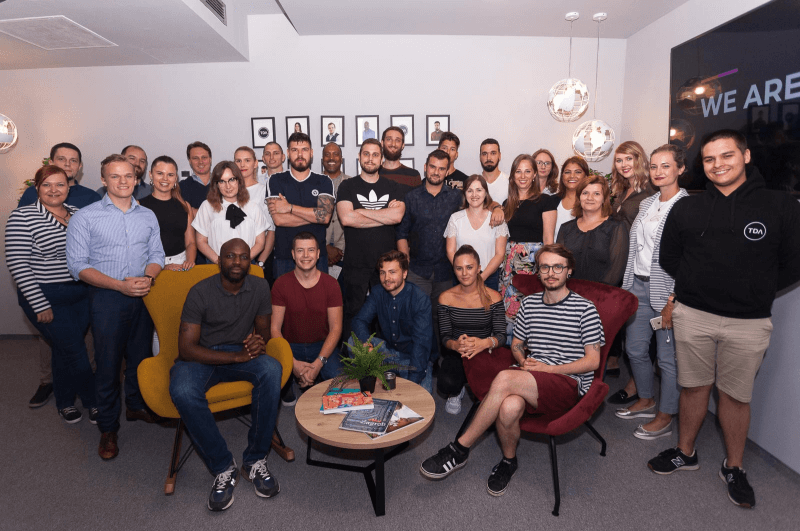Break Time Introduces New and Exclusive Collection: Hello, Yacht Club!
August 2, 2019 - Just one week after Croatia’s favorite jewelry team introduced a brand new collection that vows to do its part in reducing plastic waste (you can read more about the #reCYCLED by Break Time nautical jewelry collection here), the bosses at Break Time haven't quite taken a break themselves, and are busy keeping their beloved fans on their toes with the release of yet another collection.
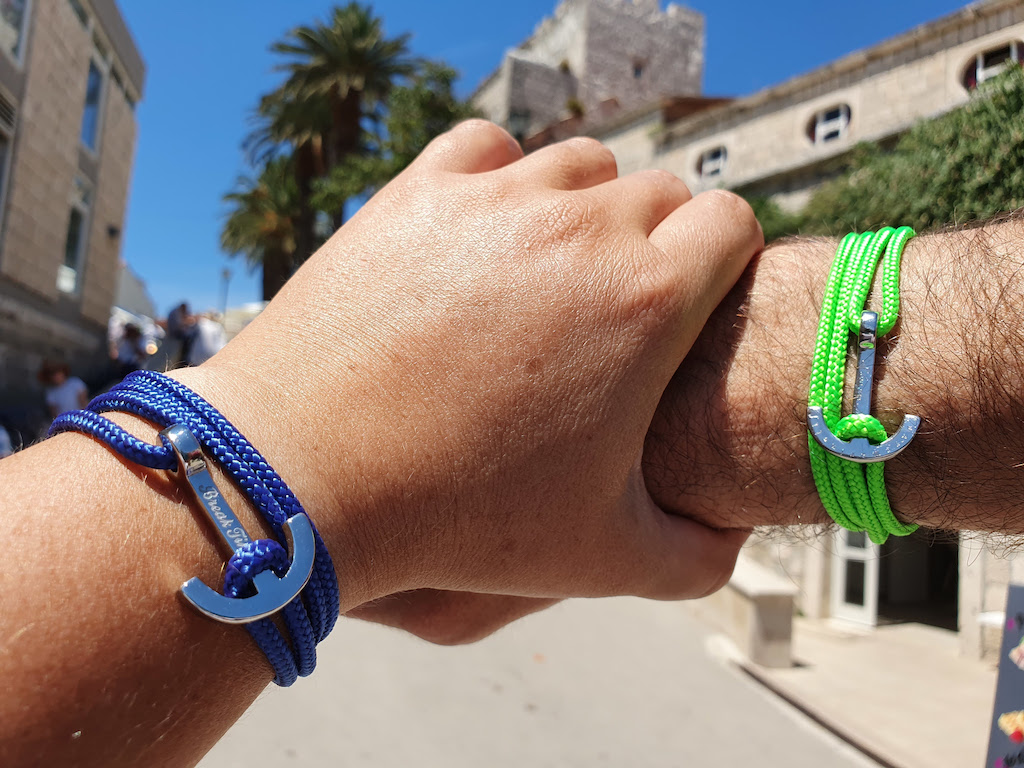
A perfect addition to your summer wardrobe, meet the new and exclusive Yacht Club collection by Break Time nautical jewelry!

“We are proudly introducing our first external collaboration, with two multi-awarded architects/designers: Attila Kim and Bogdan Ciocodeica,” announced the BT team to their fains.
Namely, the Yacht Club collection features an original stainless steel anchor, which is available in four colors (silver, rose gold, yellow gold, and black).
"Taking its inspiration from the classical anchor form, the Yacht Club Collection is a minimalist reinterpretation. Simple lines, clean surfaces for a more contemporary feel, yet embracing the history behind the symbol and - at the same time - upgrading the functional needs of the object, thus forging a timeless piece that invites you to be part of The Club,” added Attila Kim & Bogdan Ciocodeica, the Yacht Club Collection designers.
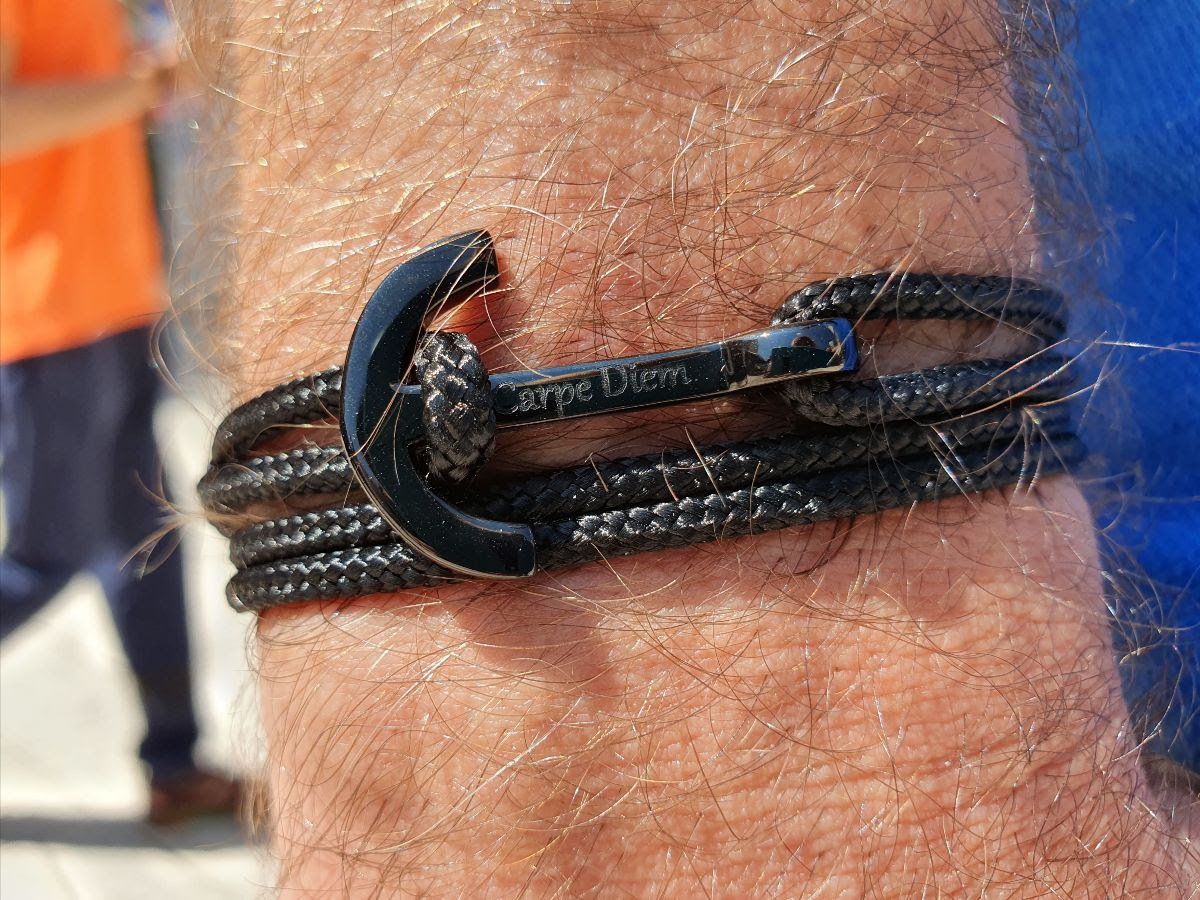
The new Yacht Club anchor bracelets can also feature an engraving of up to 15 characters on the curved part of the bracelet, and up to 10 characters on the anchor body - because who would miss the chance to show off their signature and truly one-of-a-kind arm candy?
Even better, Break Time knows how to put your helping hands to use, and if you engrave a marine animal on your new bracelet, the price of engraving will be donated to the Blue World Institute, as part of BT’s #SAVEMARINELIFE campaign.
You can get your hands on the new Yacht Club collection online, or check it out in person at the Break Time shop at Zadarska 1 in Split or Illica 14 in Zagreb.
You can find Break Time’s five Croatian locations below:
Ilica 14, ZAGREB
Zadarska 1, SPLIT
Trogirska 8, SPLIT
Antuninska 5, DUBROVNIK
Via Arsenale 10, ROVINJ
To make sure you never miss a Break Time beat, follow them on Facebook, Instagram, Twitter, and YouTube.
To read more about lifestyle in Croatia, follow TCN's dedicated page.
WWF and Hotel Esplanade in Zagreb Join Forces to Reduce Food Waste
WWF and Hotel Esplanade in Zagreb have joined forces through an initiative that aims at sustainability, zero food waste, and reducing environmental impact.
Esplanade Hotel is committed to implementing good practices with this strategy, with the support of WWF, to reduce the amount of organic waste it generates through its operations, reports HRTurizam on August 1, 2019.
It is estimated that around 88 million tons of food is dumped in Europe, while 1/5 of the population is at risk of poverty. The amount of food thrown away globally is more than enough to feed every hungry person on the planet. In the last 40 years, the amount of food thrown out has doubled. More than 50 million tons of fruit and vegetables grown in Europe are discarded each year just because it is distorted or the wrong size. These are just some of the worrying facts that prompted Zagreb's Esplanade to join the WWF (World Nature Organization) Global Food Waste project as the first hotel in Croatia and the region, seeking to contribute to reducing food waste and thus reducing its adverse impact on the environment and planet Earth.
"Through its responsible business and waste management program, Hotel Esplanade has for many years sought to properly and efficiently manage food by procuring, preparing, and recycling food waste, but through this initiative, the intention is to further maximize the use of food in the kitchen and restaurants. Through informative and educational messages directed at guests, we will strive to highlight this global problem. Of course, we also want to encourage other individuals and institutions to move in this direction,” said Esplanade's general director Ivica Max Krizmanić, adding that Esplanade Hotel strives for a 'zero food waste' strategy.
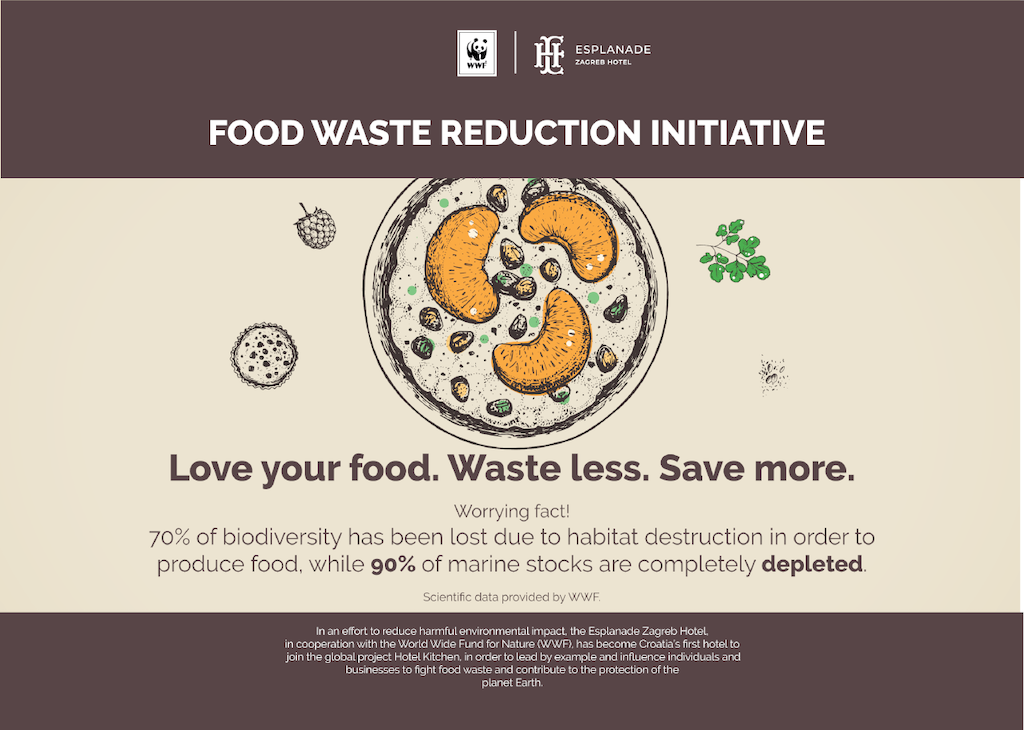
"This project is challenging, certain changes in the behavior of employees and guests in food management are necessary, but with the right tools and directional guidance, through proven methods and examples of good practice, we believe we will get measurable results," said Krizmanic.
Reducing the amount of food waste is a major challenge in the quality management of the hotel and food sector. Waste, with its vast amount and pollution in the world, is not only a severe environmental problem, but also a susceptible social factor.
“For years, we have been implementing a waste reduction strategy in the entire food and beverage business, and carefully design all our menus, but there are always situations where we can further reduce food waste. We have started this project in some segments, and the plan is to continue to spread the idea of reducing food waste throughout the business. Many of our guests and clients, especially foreign ones, are aware of this issue and welcome our initiative, but there are many who simply do not think this way, so there is the need for awareness. This is not about saving, but about reducing our environmental impact together,” said Esplanade chef Ana Grgić, adding that precise measurements of food waste have revealed that most waste is generated at places like a breakfast buffet and when organizing large events with buffet meals.
"It has been observed that guests often take in far more food than they can consume, and so they throw away dozens of kilos of food every day. Buffets offer a delicious range of enticing dishes, so, understandably, guests want to try as much as possible of what is on offer. However, the hotel regularly complements the food, so some meals will not run out during breakfast or events. In this case, the hotel will throw away the excess food. Thus, they must strive for tailored communication and encourage customers to choose the right food for their events, but also encourage guests to eat smaller portions and only consume what they can handle.
In the same way, the hotel will encourage staff to adjust their food consumption to their needs, to reduce food waste in this area as well. In addition, the hotel has a special approach to the organization of food preparation, taking into account the consumption forecast given the number of guests, their profile and, for example, their nationality, which is especially useful for dishes that take a long time to cook like štrukli, desserts, breads and the like. We believe that after informing guests and educating staff, the new measurements will produce surprisingly positive results. Through this initiative, we are thinking and explicitly working for a better future for all of us,” Grgić points out.
Throwing away food is a significant economic problem for both the economy and consumers. Encouraging hotels to make a change is not only a step to keeping guests informed, but also towards raising awareness of this problem, which should ultimately be made known by every individual.
“Fighting food waste is very important to us at WWF, and we want to encourage a behavior change in our hotels. Our long-term partner, the Esplanade Hotel, has recognized this project and started implementing it to reduce food waste. According to the first data we received, we saw where significant changes were to be made, and the hotel staff was convinced not only of the environment but also of the economic benefit. We believe that with this example, we will inspire other hotels in the region to take the leap to combat excess food,” said Fabian Peronja of WWF Adria.
Esplanade has strived for many years - both through stand-alone initiatives and collaborations - to reduce waste and their environmental impact within its responsible business program. As a result, Esplanade's lights are shut off for an hour each year to support WWF's Earth Hour project for more rational use of energy. The hotel was the first in Croatia to introduce Tesla destination chargers, and more recently, Porsche destination chargers through which guests can charge the batteries of their vehicles for free.
Furthermore, the hotel has been working on digitizing promotional material for years, offering guests a choice of 7,000 newspapers and magazines in digital form for free. The hotel encourages guests to operate their environmentally responsible business through a program of more careful use of hotel linens and towels, and also encourages guests and staff to consume filtered tap water to reduce plastic waste.
To read more about lifestyle in Croatia, follow TCN’s dedicated page.
6 Murdered, Killer Commits Suicide in Dramatic Night in Zagreb
August 2, 2019 - A night of horror in Zagreb, as 6 people are shot dead before the alleged killer commits suicide after a police manhunt.
The Kajzerica district of Novi Zagreb was rocked last night by the sound of gunshots at 19:30, reports HINA.
Officers called to the area by concerned neighbours found no less than 6 bodies who appeared to have died from gunshot wounds, as well as an unharmed baby. There were two men, three women and a 10-year-old child.
Large parts of Zagreb were sealed off and a manhunt ensued, which has now apparently ended with the apparent suicide of the alleged killer, Croatian media reports.
This is a breaking news story and we will update as soon as we have more information.
Zagreb as It Once Was: Holidays in the Capital not the Coast in 1969 (VIDEO)
July 31, 2019 - Continuing our look at Croatia as It Once Was, a visit to the capital Zagreb in 1969 to meet plenty of people enjoying their summer holiday.
Zagreb is a city that has really grown on me in recent years as it has developed from the boring city that it was when I first arrived.
There is plenty going on, a much better gourmet scene, a much more multicultural scene, and a very vibrant tech and entrepreneurial scene. Whereas 15 years ago I could not wait to get my business done and leave, today I could quite happily live there.
But how was it back in 1969, some 50 years ago?
Moving away from the coast in this latest video of Croatia in yesteryear, a HRT reporter tours some of the hot spots of the city and meets plenty of locals enjoying (for the most part at least) their holidays in Zagreb and not the coast, for a variety of reasons.
Croatia's Foreign Entrepreneurs: Scott Coleman, from San Francisco to Zagreb
July 31, 2019 - Continuing our look at the foreign entrepreneurs trying to succeed in Croatia as so many are emigrating, meet Zagreb resident Scott Coleman from San Francisco.
First and foremost, why Croatia?
A woman. My lovely, patient and significantly more intelligent wife is Croatian. We had been living in London where I was a finance lawyer. My law firm asked me if I wanted to move to Singapore or New York. We chose Zagreb, which I think was a surprise to the firm. London is amazing, but we wanted more time for family (and better weather). I absolutely love living in Zagreb. It’s the perfect size, funky and there’s so much do and see just a short drive away.
INTRO YOUR BUSINESS, what is it you do?
We are an online marketplace where companies leave requests for digital services (web/app development, digital marketing, branding, etc.) and then digital agencies pitch for work. We’re a startup but we’re growing fast. We opened the marketplace in October 2018 and have already had $41m in projects and over 4000 agencies from 110 countries. We won an international startup competition in May 2018 and in February Startup Grind Silicon Valley named us a Top 50 Global Startup. My business partner Goran Deak runs the place and it was his idea – I just try to stay out of the way.
Tell us about some of the differences in your expectations of running a business in Croatia and the reality.
I have been surprised by the number of expats in Zagreb. We’ve hired people from Brazil, Mexico, India, Poland, France, the US, etc. Like me, many of us are here for love. But it really helps to have an international team when trying to build a global business. It’s also pretty fun to work in a multicultural office.
What (if any) bureaucratical issues have you encountered and how did you overcome them (i.e. any advice to the would-be entrepreneur?)
Where to start…. It took 3 weeks for our company name to get approved. Top Digital Agency was surprisingly controversial. First, it was in English so we needed an official certified translation. Second, the judge objected to “Top” because he believed it falsely implied that we were the best. “Agency” was also problematic because we were told only a government body could have “Agency” in their name. All in all, I think it was 5 trips to different offices and judges just to get our name… During that period, we couldn’t legally pay our employees. Another win for the state.
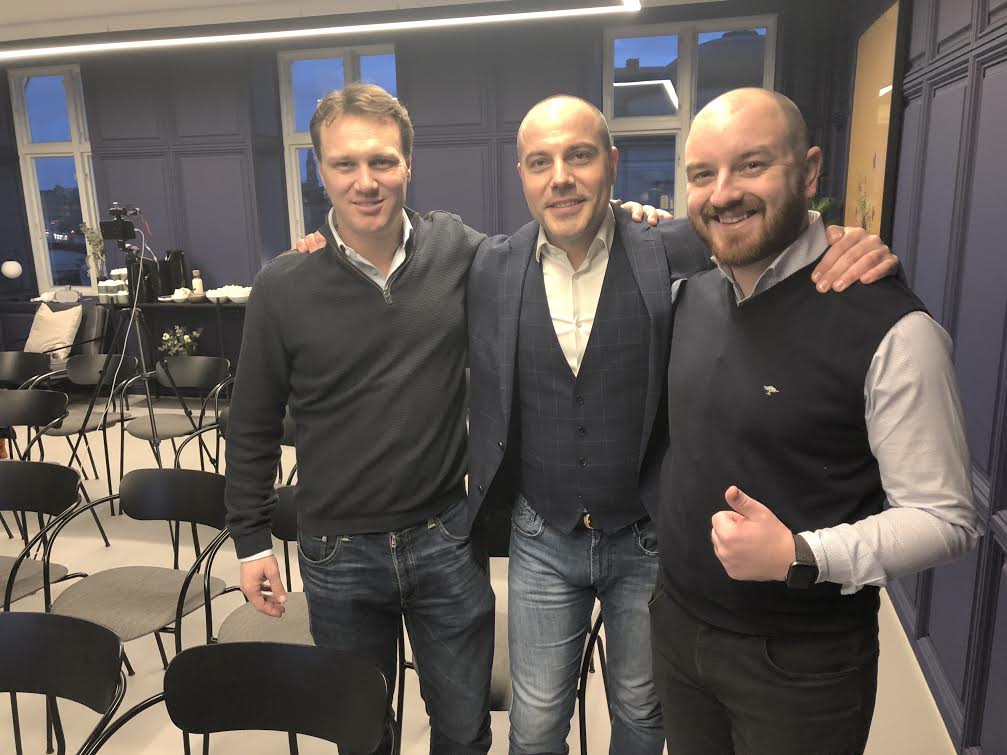
How is your product or business perceived in the Croatian market?
We think it’s perceived well! But the exciting thing about our business is that it’s global. We have Croatian clients but our market is international.
What were the opinions of your friends and community, were they supportive of your idea, or…?
I think people were pretty surprised when my wife and I left careers in London to move to Zagreb. But there is also a growing recognition in major markets that the work/life balance is just not right. I think I have lots of friends that would love to make a similar move – they just need to take the leap. Looking back on my life in London, there’s an emperor has no clothes feeling – our quality of life here is just so much better. We take our kids to kindergarten every day and pick them up. We have dinner together every night and weekends are in Zagorje, Istra or the coast. In London, I mostly ate dinner at my desk, we had a nanny and weekends were for sleeping and recovery.
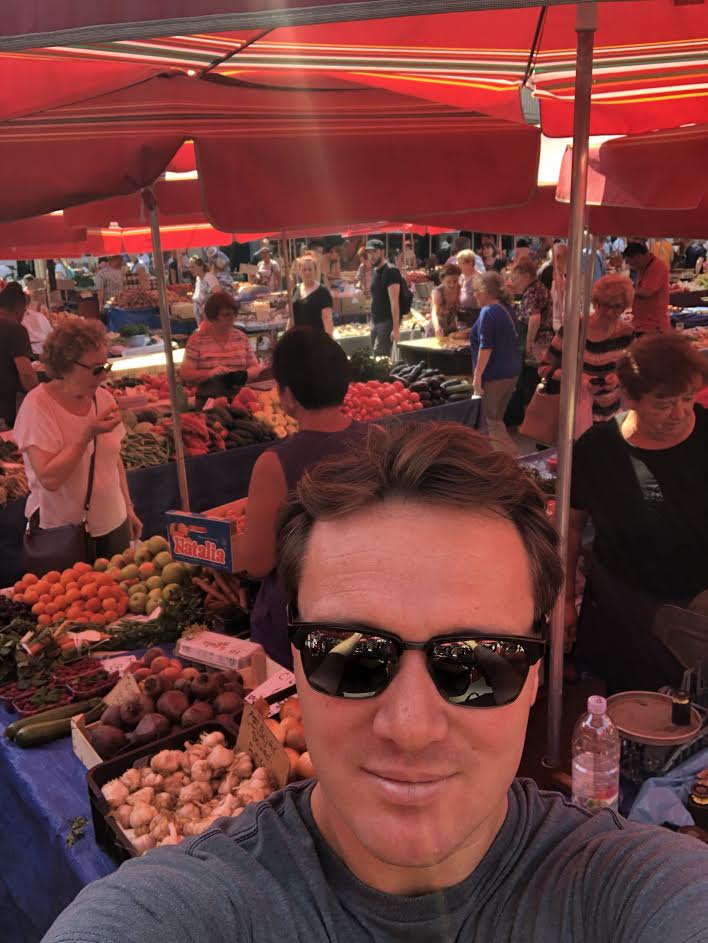
What are some of the greatest challenges you have faced in business in Croatia?
Finding people and finding capital. People: It’s been surprisingly difficult to find people that are willing to work hard. There are lots of smart people in Croatia but what’s missing is maybe an understanding that if you want to compete on the global market, you really do need to work hard. I think the younger generations in particular are a little too focused on coffee and cigarettes but maybe I’m just a grumpy old man. Capital: Until recently there just wasn’t much capital in Croatia for startups. If you look at other locations, there are many more funds, business angels. small business loan programs and tax breaks. Funderbeam, Fil Rouge Capital and others are really important developments for the region and investment is coming.
I think the entrepreneurial ecosystem is developing and ready to grow rapidly. We just need someone in government to recognize the potential that tech startups have here. There are some really amazing tech companies in this country: Infobip, Rimac, Gideon Brothers, Include Nanobit and us (). Investment and de-regulation should be focused on the digital space not just on more tourism offers. This is how you keep your young, smart people in the country and create good jobs, not just more summer service industry positions.
If you knew then, what you know now, would you have come?
Definitely. I would have come sooner!
What are 3 things you love about Croatia?
Obviously, the country is absolutely beautiful and it is amazing how many different places you can see in such a small area. I’ve also been blown away by the generosity and friendliness of the people. Once you have a friend in Croatia, you have a new family too. And there’s nothing like walking around Dolac on a sunny Saturday morning. But If I had to choose three things: Istra, Korcula and Skampi na buzaru.
What are 3 things you would like to see improved in the business climate in Croatia?
The state is obviously a huge problem in Croatia. You have bloated regulations, bloated agencies and bloated Uhljebs. Together they squeeze the life out of the Croatian economy. Want to improve the economy, keep young people and decrease the dependence on tourism: cut taxes on small businesses, simplify the red tape and cut the needless state bodies that the private sector has to hold up through taxes.
How is it working with Croatians in terms of a business mentality?
I had to get used to coffee meetings. I hardly left my desk in London. Now I feel like I never leave the kafic and am usually jittery by 3pm.
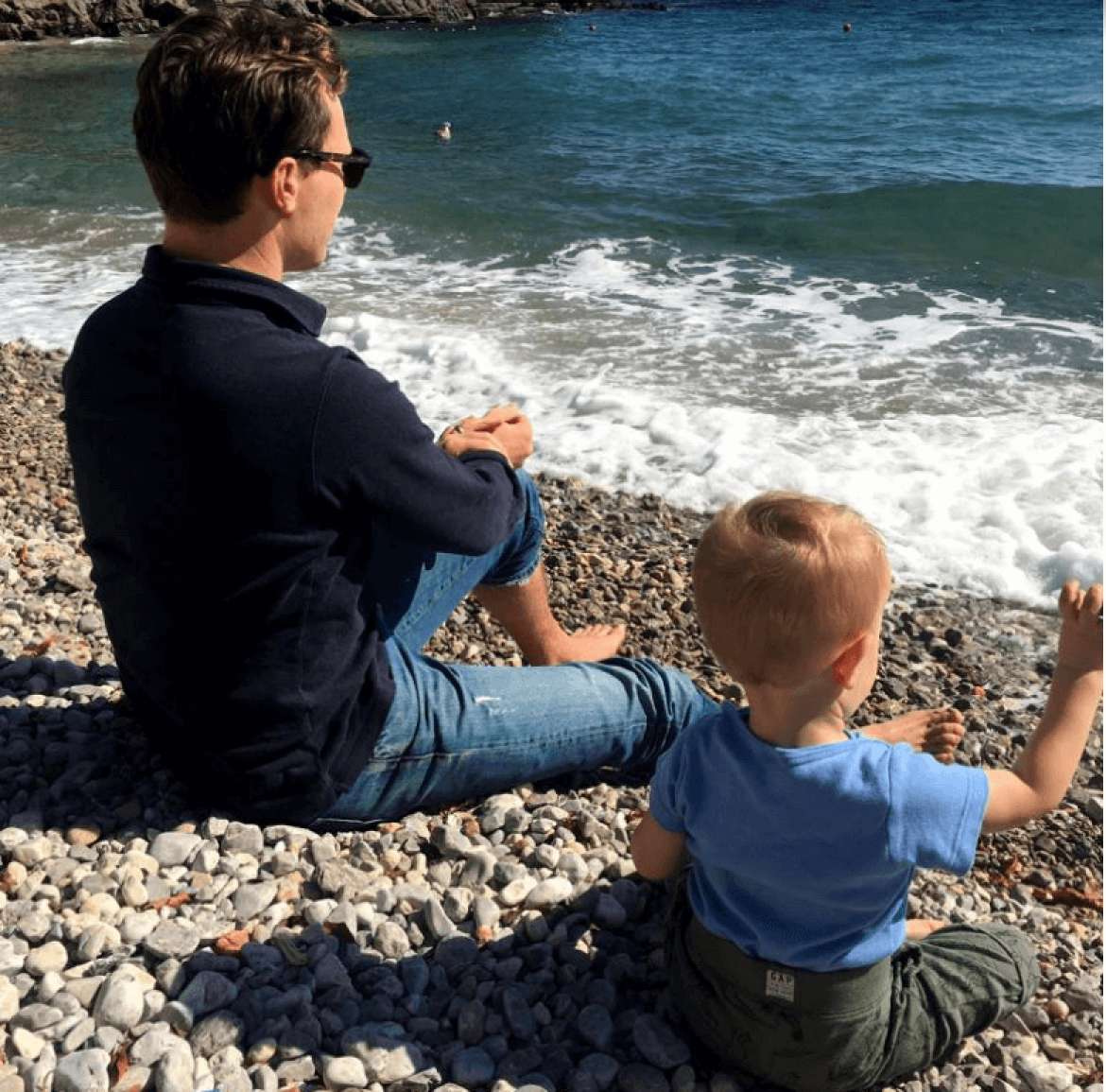
Advice for foreign entrepreneurs thinking of coming to Croatia?
The biggest advice I’d give any aspiring entrepreneur is to find a great partner. Starting a business anywhere is really tough. Even in the best of times, there are lots of hard days. Having a great partner – someone you like and trust – makes it much, much easier. I got lucky to go into business with Goran both because he had already owned a business in Croatia and because we get along so well. Whenever we have a bad day or we just need to move one from a bad moment, we order a round of the worst travarica in the kafic.
Neither of us are travarica fans. But there is something about sharing a face-cringe with your business partner that really helps you see the big picture. Because after all, nothing can be as bad as a bad travarica. Fortunately, it’s been a while since the last round.
You can connect with Scott via the Top Digital Agency website.
Champions League Qualifiers: Dinamo Zagreb Tops Saburtalo, Moves to 3rd Round
Dinamo Zagreb topped Georgian club Saburtalo both home and away to move to the next round of Champions League qualifications.
Dinamo overcame Georgian club Saburtalo 3:0 in the return match of the second Champions League qualifying round on Thursday, and thus went 5:0 overall to advance to the third qualifying round against Hungarian club Ferencvaros, reports Gol.hr on July 30, 2019.
In the first match in Tbilisi, Dinamo won 2:0, though the return match was much harder for the Zagreb club than expected. Not only did they have to play behind closed doors thanks to a UEFA ban, but the Georgian club had three great chances in the first half which could have potentially shocked the Croatian champion.
Fortunately, Mislav Oršić cleared any doubts in the 77th minute for 1:0, while Bruno Petković confirmed the Dinamo victory in the 89th minute for 2:0. Interestingly, Oršić and Petković were also the goalscorers in Tbilisi. In the last moments of the match, Spanish superstar Dani Olmo also scored in his first appearance this season for the 3:0 win.
Dinamo will play against Ferencvaros in the third qualifying round. The Hungarian club beat Valletta 3:1 in their first match in Budapest, while they finished 1:1 in Ta'Qali.
The first match is scheduled for Tuesday in Zagreb, followed by the return match in Budapest.
Dinamo hosted Saburtalo behind closed doors as they served a UEFA punishment for using pyrotechnics, blocking the stairs and racist behavior during last season's match against Benfica. Dinamo received a two-game ban, though one game is conditional and will be activated if Dinamo is punished again within a two-year period.
For the fifth time in the history of the club, Dinamo played in front of empty stands and achieved their second victory.
To read more about sport in Croatia, follow TCN’s dedicated page.
Flights to Croatia: LOT Considering Budapest-Zagreb Route, S7 Boosts Pula
July 29, 2019 - The latest news from around Croatia’s airports for new flights to Croatia with updates from Zagreb and Pula airports.
Ex Yu Aviation reports that LOT Polish Airlines could soon operate a route between Budapest and Zagreb, as well as to Belgrade, Prague and Sofia, as the airline works on building its hub in the capital of Hungary. The new routes are expected to launch this September, though more information will be known after a press conference this Wednesday.
With this expansion, LOT would become one of the main hub airlines at the Budapest Airport. These new routes would be in addition to the already scheduled Brussels and Bucharest lines.
Furthermore, this new line would resume the Budapest-Zagreb route for the first time in five years. With this addition, the airline hopes to target business passengers traveling between European capitals and passengers with onward connections, like the routes from Budapest to New York and Chicago.
Recall, Qatar Airways once operated between Doha and Zagreb via Budapest, while Hungary’s former national carrier Malev once ran 18 flights per week between the two cities until it folded in 2012.
LOT currently works between Zagreb and Warsaw two times a day.
In other news, Avio Radar reports that S7 Airlines, which is a member of the global airline association OneWorld, announced that it would boost the Moscow-Domodedovo-Pula line for the 2020 summer. The airline plans for six flights per week, on every day apart from Thursday. The new flights will be added on Sundays, and this year’s Thursday flight will change to a new flight on Tuesdays next year.
The Boeing 737-800 aircraft have been announced for next year instead of the Airbus A320 aircraft.
To read more about travel in Croatia, follow TCN’s dedicated page.
Meet ch-aviation: Swiss Global Aviation Data Leaders with Growing Zagreb Subsidiary
July 29, 2019 - They are the global leaders in the aviation data industry, have an expanding subsidiary in Zagreb, and they are looking for more talented Croatian staff. Meet ch-aviation.
Croatia never ceases to amaze, all the more so for me when I stopped focusing 100% on tourism and started to explore what the world of Croatian business and entrepreneurship had to offer.
It was quite extraordinary. I met a Syrian based in Vukovar employing 750 people, a Brit just outside Zagreb with the biggest baklava factory in Europe, and a Zagreb company which was a fintech global leader with foreign staff from no less than 24 countries, just as all Croatia's talent is emigrating. Extraordinary.
And then there was ch-aviation.
I first cam across the ch-aviation website about six years ago, and I was thrilled. Here was a bunch of very efficient Swiss guys posting the latest information about flight news before anyone else. Their knowledge of the seaplane situation was detailed. They became the easiest blogs of the week, and I was often first with the information almost every time. German Wings has announced five new summer routes to Croatia, that kind of thing.
God Bless Switzerland and your efficiency and great work ethic. If only we had that in Croatia.
So imagine my surprise last year when I got an email from CEO Thomas Jaeger and CCO Max Oldorf saying that would be in Zagreb on a certain date and would like to meet. Zagreb? I thought to myself. Well, I guess if you are in the aviation business, it made sense to travel and keep in touch with the latest. We agreed a meeting place, after which Oldorf gave a GREAT TCN interview on why the seaplanes failed and whether or not they would fly again.
And that's when I was amazed all over again, because it turns out that they are regular visitors to Zagreb, because the Croatian capital is their main subsidiary outside their Swiss base. They hired Croatian staff, then hired more, and as they continue with their rapid expansion, they are looking to hire even more.
I went to visit them recently at their office in Zagreb, where CEO Jaeger and Chief Operating Officer Sanja Ples kindly agreed to tell me more.
Aviation data - firstly tell us who you are, what you do, and who uses your services?
Thomas Jaeger: I started ch-aviation as a hobby in the small city of Chur in Switzerland more than 20 years ago – back in 1998. Now it is a bit of a hobby blown out of proportion as we have hundreds of customers around the globe, including airlines, airports, finance and leasing companies, aircraft manufacturers and maintenance organizations for example. Our subscriber list includes worldwide known brands such as Airbus, Fraport, Delta Air Lines, and DHL, but also many industry leading companies that are maybe less known to the general public like the largest aircraft lessor in the world, AerCap.

We are providing decision-makers in the airline industry with relevant and up-to-date airline intelligence and insightful news. We collect, process, verify and make available tons of data in an easy searchable form to industry stakeholders. On our website www.ch-aviation.com, we run an extensive IaaS (Information as a Service) business where people can subscribe to get access to our Airline Industry News and Data.
For example, we track more than 50,000 aircraft worldwide (that’s actually every commercial aircraft with more than 20 seats) and provide the most current and reliable database in the industry for our subscribers. Our customers are also able to access schedules, capacity data, airline and aircraft owner’s contact information and other industry related information.
The company is privately held, led by me and two other aviation professionals from Switzerland.
You are from Switzerland and are a global leader in your industry, and yet you chose to base your business in Zagreb, which is an interesting choice. Why?
Thomas Jaeger: We started our subsidiary in Zagreb back in 2016 and we saw a possibility to build large aviation data hub here. We are now employing almost 20 people here, mainly data researchers and analysts as well as our colleagues in sales. Our decision back then was based on the fact where we are able to find enough talent to work with aviation data and a place which is conveniently accessible from Switzerland and aviation hubs in Europe. Of course it also helped that Sanja, who runs the operations for us here in Zagreb, had been a customer of ours for many years already at the time and someone all of us personally knew well, so we also had a good base to start from in that sense.
How are things working out with a Croatian base?

Sanja Ples: I am more than satisfied with our investment so far having recruited more than 20 highly qualified people here. We see many well-educated Croatians who are eager to work in the fast-growing aviation industry. We are committed to our decision to grow here and we expect we will be able to grow our team in Zagreb.
Tell us about your staff. How many locals are working for you and how quickly are you expanding?
Sanja Ples: We opened our office in Zagreb back in 2016 and now we have close to 20 people working here. The aviation sector is growing tremendously worldwide, and we are able to grow our business, so we expect to grow our team by a third each year locally as well. We are constantly looking for data researchers and sales managers to join our growing team in Croatia.
Your experience of a primarily Croatian workforce so far? What are the pros and cons?
Thomas Jaeger: We are able to recruit high-quality people, especially young ones coming directly out of the universities, eager to learn and loving aviation. We do not expect to have a great pool of people with the aviation and research knowledge available to jump into our processes and start contributing on a high level immediately. And that is also a point where we struggle the most: finding experienced management for the Croatian entity which is still rapidly growing. So, we have to develop and foster our own middle management talents in-house and have done so very successfully.
The strict governmental employment regulations and high taxes are also amongst issues we are facing. After a certain paygrade level, the Croatian employees are getting much more expensive than their European counterparts and getting people to relocate to Zagreb from elsewhere in Europe is also rather difficult as a result. That limits the opportunity of having high paid jobs developing in Croatia. That is probably the most frustrating part of the growth process, especially as one can see a great pool of motivated and eager-to-learn youngsters that show a high level of loyalty to the company.
Several IT companies in Croatia have complained at how hard it is to find high-quality staff, as so many people are emigrating in search of better-paid opportunities. What is your experience, and how are you finding staff?
Thomas Jaeger: There is a similar issue with most of the countries in Central and Eastern Europe – it is natural people are always searching for better opportunities for them. At the same time this is an opportunity for us – thanks to our investment in Croatia we can offer a very good alternative to stay here.
Since we started the operations here in Zagreb, the workforce situation has changed a lot. In the first employment rounds, we have had a tremendous volume of applications to process and to choose from. It would be unfair to claim the situation was bad right now, but the volume has visibly dropped.
I understand that you are constantly on the lookout for bright new Croatian talent - what skills and experience should interested candidates possess?
Sanja Ples: First, we need to start from the basics – English is the language for the aviation business and fluency both oral and written is a must. Being in the data business, we are usually expecting our future employees to be able to manage large amounts of data, to be able collect, organize and evaluate data using critical thinking. And last, but not least, you need to have some passion for aviation to join this industry.
If you are looking to learn more about either job opportunities or the best aviation data, you can contact ch-aviation via the official website.
To learn more about foreign entrepreneurs in Croatia, follow the dedicated TCN series.
Free Films, Popcorn as Part of EU Campaign in Zagreb
ZAGREB, July 28, 2019 - The European Commission Representation in Croatia is organising a film night on July 28 on the summer stage of Zagreb's Tuškanac cinema with free popcorn and screenings of shorts from the #EUandME campaign as well as the US feature "Bookshop" by Isabel Coixet.
The short films from the #EUandME campaign focus on the everyday advantages of life in the EU. They were made by prominent European directors, including "Debut" by Dalibor Matanić of Croatia, "The Loner" by Tomasz Konecki of Poland and "Party Animal" by Yorgos Zois of Greece.
As part of the event, visitors will have the opportunity to learn about their rights in various areas of life in the EU which, organisers say, provides citizens with many opportunities to do what they love by helping them through EU initiatives.
The Commission launched the #EUandME campaign to inform people aged 17 to 35 about the values and benefits of the EU and its citizens' rights as well as about how they can be helped in realising their passions and ambitions.
The campaign focuses on mobility, digital technology, skills and business, sustainability, and rights.
More news about Croatia and the EU can be found in the Politics section.
Zagreb Airport Anticipates 5% Increase in Passengers this Year
Zagreb Airport should see another stellar year as a 5% increase in passengers is expected in 2019.
"Since the start of the concession, at the end of 2013, until today, Zagreb Airport has recorded a 45% increase in passenger numbers. Growth is continuing this year as well in line with our plans and expectations,” the airport said. Recall, the airport welcomed 1,534,105 in the first half of 2019, which is an increase of 4.2% or 62,477 more passengers compared to 2018, reports Ex Yu Aviation on July 25, 2019.
While July should be a bit slower than last year since there is no World Cup this year, an even higher increase in passengers should be seen in the first six months of 2020 when Croatia takes on the presidency of the Council of the European Union.
"Currently, some thirty airlines maintain scheduled flights to Zagreb, connecting the city to fifty destinations in Croatia, Europe, and the world. Zagreb Airport is in constant contact with a number of carriers concerning the launch of new routes. Zagreb Airport can expect to handle five million passengers per year by 2026," the capital city airport added.
This growth is thanks to full-service carriers, which account for over 90% of all seats at Zagreb Airport, while low-cost airlines make up 8%.
As has been previously announced, this winter season, which officially begins on October 27, will also be busy at Zagreb Airport.
Namely, Aegean Airlines will operate three flights per week this winter until January 15. British Airways will run up to nine flights between London Heathrow, while Iberia Airlines will operate from Madrid three times per week. Furthermore, Korean Air announced it would replace the Boeing 777-200ER aircraft with the bigger Boeing 787-jet.
Flydubai, however, will cut from seven to four flights per week this weekend apart from the peak winter season from the middle of December to mid-January.
To read more about travel in Croatia, follow TCN’s dedicated page.

